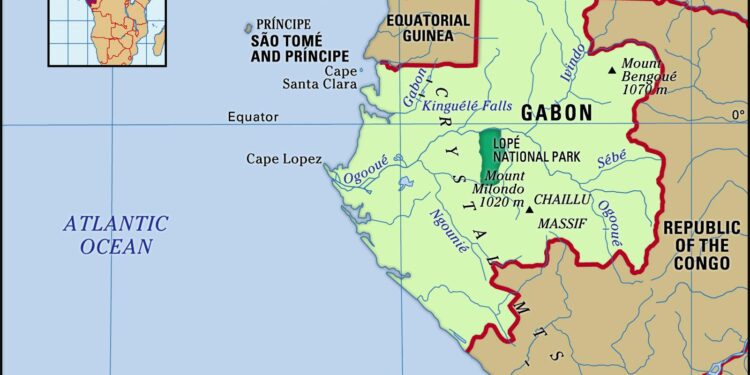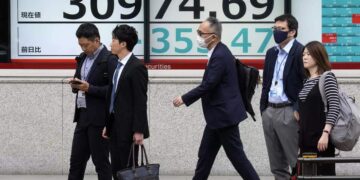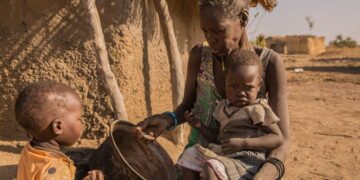Ex-President Ali Bongo and Family Find Refuge in Angola Amid Gabon’s Political Upheaval
Following the dramatic military coup that toppled Ali Bongo Ondimba’s administration in August 2023, the former Gabonese president and several family members have been released from detention and granted asylum in neighboring Angola. This relocation not only signals a pivotal moment for Gabon’s internal political trajectory but also highlights shifting dynamics within Central Africa’s diplomatic landscape. As tensions gradually ease, this article explores the context of Bongo’s release, regional reactions, and potential consequences for Gabon’s future governance.
Safe Haven: Angola’s Role in Hosting Gabon’s Former Leadership
In an unexpected yet strategic development, Angola has extended asylum to Ali Bongo Ondimba and his immediate family following their release from custody. This decision comes amid ongoing instability after the military takeover that ended nearly two decades of Bongo family rule. By offering sanctuary, Angolan authorities aim to provide protection against possible reprisals while positioning themselves as influential mediators within Central African politics.
The Angolan government emphasizes its commitment to humanitarian principles by safeguarding political refugees during turbulent times. Although specific details about their living conditions remain confidential, reports suggest that ensuring their security is a priority for Luanda. However, this move has sparked debate among regional observers; some fear it may embolden opposition factions or exacerbate unrest within Gabon.
Repercussions on Gabon’s Political Environment Post-Relocation
The departure of Ali Bongo and his relatives creates a significant power vacuum in Gabon’s political arena. With the former ruling family now outside national borders, various political groups are maneuvering to capitalize on this shift—potentially reshaping alliances and contesting leadership roles.
- Redistribution of Power: The absence of the long-standing regime opens opportunities for emerging leaders to consolidate influence amid uncertainty.
- Heightened Risk of Instability: Loyalists loyal to the previous government might resist changes imposed by new authorities, risking civil discord.
- Evolving Diplomatic Ties: Angola’s acceptance signals possible realignments in regional partnerships affecting economic cooperation and security arrangements.
Beyond immediate factional struggles lies an opportunity for reform-minded actors advocating transparency and inclusive governance—a response fueled by public frustration with entrenched partisan politics. To navigate these challenges effectively, key priorities must be addressed:
| Main Focus Area | Description |
|---|---|
| Enhancing Institutional Transparency | Create mechanisms promoting accountability between government bodies and citizens through open data initiatives. |
| Cultivating National Cohesion | Pursue dialogue platforms uniting diverse ethnic groups and political factions toward common goals. |
| Economic Stabilization Efforts | Implement policies aimed at mitigating economic shocks resulting from political transitions while fostering sustainable growth.< /td > |
Navigating International Support: Strategies for Strengthening Democratic Transition in Gabon
The unfolding situation presents an urgent call for coordinated international engagement designed to bolster democratic institutions during this fragile period. Global partners should consider multifaceted approaches tailored specifically toward supporting local stakeholders’ aspirations:
- < strong >Inclusive Dialogue Facilitation:< / strong > Encourage conversations involving grassroots leaders alongside formal politicians ensuring broad representation across society.< / li >
- < strong >Capacity Enhancement:< / strong > Invest resources into empowering civil society organizations as watchdogs promoting transparency; independent media outlets play critical roles here.< / li >
- < strong >Election Oversight:< / strong > Deploy impartial international observers tasked with verifying electoral integrity ahead of upcoming polls thereby legitimizing outcomes.< / li >
- < strong >Economic Aid Alignment:< / strong > Channel financial assistance towards programs reinforcing democratic reforms coupled with socioeconomic development objectives.< / li >
< / ul >A collaborative framework involving entities such as the African Union (AU) alongside sub-regional bodies like ECCAS could amplify legitimacy surrounding governance reforms across Central Africa. Below is an outline highlighting key domains where external support can be most impactful:
< th scope="col" >Area of Assistance< / th >< th scope="col" >Description< / th > < tbody >< tr >< td scope="row" style="width:40%" data-align="left">Financial Resources< / td >< td style="width:60%" data-align="left">Provision of funds dedicated explicitly toward strengthening democratic frameworks including judicial independence.Training & Education Programs Workshops targeting elected officials & public servants focusing on ethical leadership & good governance practices.
Cultural Exchange Initiatives Programs fostering mutual understanding through educational outreach emphasizing civic responsibility & democratic values. . . .
A Forward Look: Assessing Regional Impact Amid Ongoing Developments
The transfer of Ali Bongo Ondimba along with his kin into Angolan refuge represents more than just a personal reprieve—it encapsulates broader shifts reverberating throughout Central Africa’s geopolitical fabric.
As observers watch closely how these events unfold over coming months,
the balance between maintaining order domestically versus encouraging progressive reform remains delicate.
Angola’s role as host nation places it at center stage diplomatically,
potentially influencing future negotiations around peacebuilding efforts.Meanwhile,
the international community continues monitoring developments attentively,
recognizing that stability within resource-rich nations like Gabon holds implications far beyond its borders.
For instance,
Gabon contributes approximately 200 million barrels annually to global oil markets (2023 figures),
making uninterrupted governance crucial not only locally but globally.Ultimately,
how effectively new leadership addresses demands for inclusivity,
transparency,
and economic resilience will determine whether this chapter leads towards lasting peace or further volatility.
The world remains attentive as Central Africa navigates these uncertain waters.















